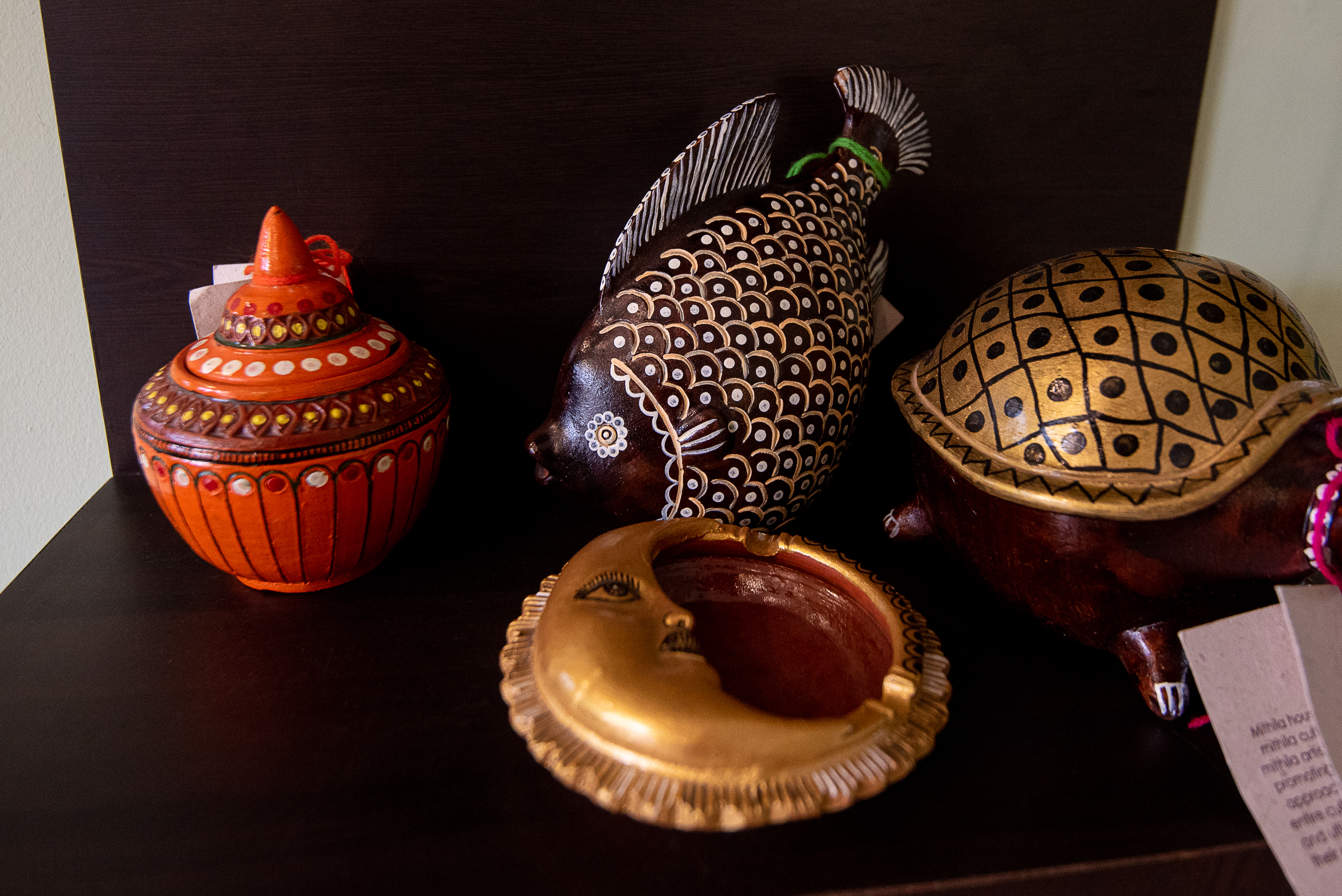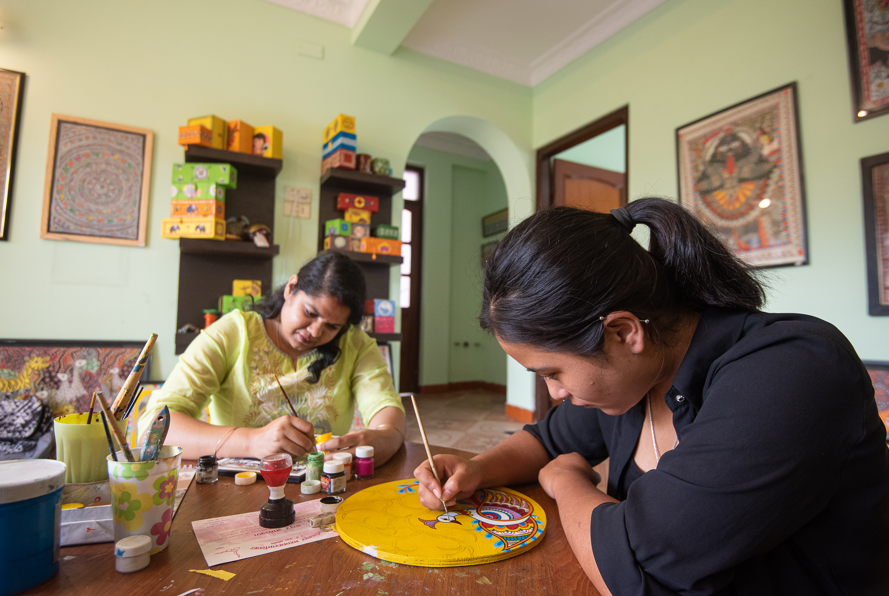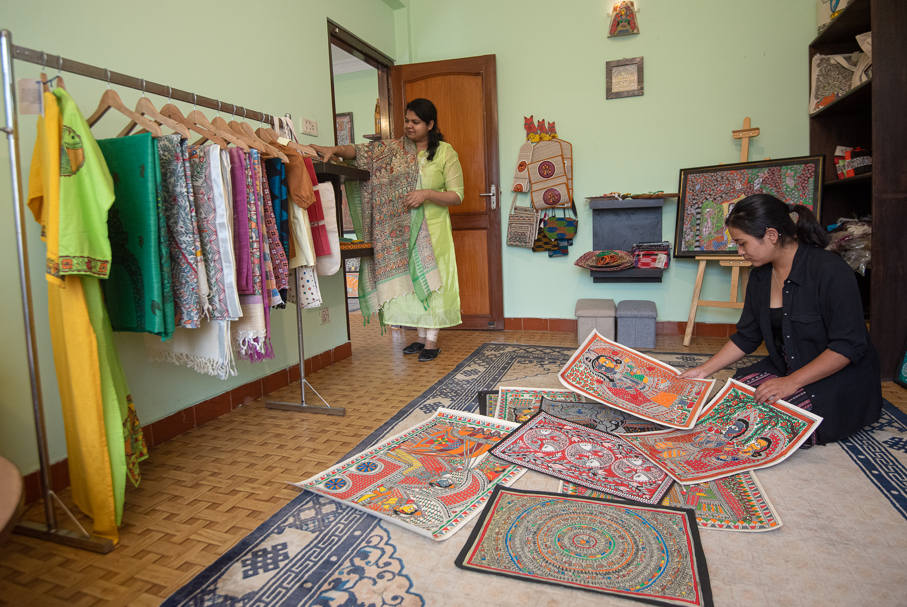Border closure wallops Birgunj hotels
Hotels and tourism-related businesses in Birgunj are on the verge of collapsing after tourists stopped coming to the town following the border’s partial closure to prevent the import of Covid-19.
The government sealed the border in March 2020 following a nationwide lockdown to contain the spread of the contagious disease. Although cargo vehicles and pedestrians are allowed to cross the border, Indian vehicles carrying tourists haven’t been allowed in for over a year and half.
“Tourism-related businesses in the Birgunj area have incurred losses of around Rs 1.5 billion after Indian tourists stopped coming,” says Hari Pant, president of the Hotel and Tourism Entrepreneurs Association, Birgunj.
"During the first wave of Covid-19, the industry lost around Rs 500 million. During the second wave, the total loss jumped to over Rs 1 billion." According to Pant, there are more than 70 hotels in operation in Birgunj and 10 more are being built. He says 60 to 80 percent of the customers and tourists who stay in hotels in the Birgunj area are Indians. "Four-five hotels in the bus park area have already been closed and some are preparing to shut," he says, adding that hotels in Birgunj are operating at 25 percent capacity.
Kuber Karki, a member of the association, says 60 percent of hotel workers lost their jobs due to the inability of hotels to operate at full capacity. "We have been unable to pay house rent as well as worker allowances and salaries," he says. Interest on loans and electricity bills are also increasing.
Karki, who runs Hotel Kumu Palace on Link Road, says he will have no choice but to close his hotel if the situation remains unchanged.
Hoteliers have been demanding that the Birgunj border crossing be fully opened as the infection rates have declined across the country, including in Birgunj. The association says the government has ignored their demands.
The association had handed over a memorandum to Parsa’s District Administration Office as well as District Covid Crisis Management Center on June 25 asking for permission to operate hotels, lodges and party palaces in Birgunj. These establishments later opened. Now the association is preparing to meet the prime minister and hand over another memorandum on the border.
A 20-minute documentary has been prepared about the impact of the epidemic and the closure of the border checkpoint on the hotel and tourism businesses in Birgunj, says Madhav Basnet, general secretary of the association.
Rachendra Thapa, manager at country Inn Hotel, says, "Thousands of freight vehicles as well as thousands of Nepali nationals cross over from India via Birgunj every day and they supposedly don’t bring Covid-19. But Indian tourists do? What are they thinking?"
Awards and decorations for Nepali entertainers
On the occasion of Constitution Day on September 19, the government announced the names of the recipients of various medals and decorations for this year.
Actors Keki Adhikari and Anmol KC and singers Prakash Saput and Hemant Sharma are on the list for Janasewa Shri. Comedian Kamal Gaonle, dancer Mahesh Prakash Hada, singer Navin Kumar Poudyal, deaf artist Sujal Bam, dancer Teriya Fauja Magar, artist Shiva Shankar Rijal (Jogendra), Rajkumar Rai, and Maithili artist Ranju Jha have also been chosen for the award.
Folk singer Bishnu Majhi, artists Nawal Khadka, Prakash Ghimire and Ramesh Budhathoki, actors Deepashree Niraula and Hemant Budhathoki, and singers Chandra Prasad Sharma, Kulendra Bishwakarma and Devika Pradhan, and musician Kastup Pant have also been named.
President Bidya Devi Bhandari will confer the medals on the recipients at a later date.
Striving to make Mithila art more accessible
The origin of Mithila art is rooted in a legend. King Janak had the walls of homes in his kingdom painted in vibrant color patterns and scenes to welcome Lord Ram when he came to ask for Sita’s hand in marriage. Thereafter, the art was done on walls during weddings and religious festivals, mainly by women, and was passed down generations in the Mithila region—comprising parts of the Indian states of Bihar and Jharkhand and, on Nepal’s side, eastern Tarai. Janakpur, home to the grand white marble structure that is the Janaki Mandir, is popular for Mithila art.
Today, with its one-dimensional portraits, a variety of birds and animals, and other motifs, Mithila art isn’t limited to walls and paper. It has creeped into home décor, clothes, bags, and other accessories—thanks to young entrepreneurs and artists who believe this culturally rich form of art needs to be preserved and promoted.
“I feel the only possible way to do that is by making the art accessible,” says Trishna Singh Bhandari, founder, Mithila House, a social enterprise in Sanepa, Lalitpur. Out of this need came the idea of incorporating Mithila art in just about anything people might use on a regular basis. On display at Mithila House are water bottles, jewelry boxes, kettles, bags, and saris among other things, with intricate Mithila art on them. The main purpose here, adds Bhandari, is a revival of still largely-unknown Mithila art in Nepal. Mithila House intends to do this by making Mithila art a point of conversation.
Mithila art, she says, brings back fond childhood memories and fascinates her. Not only does it have a traditional and cultural background with its depictions of the way of life in Tarai, it has evolved to include stories of women empowerment and that Bhandari finds intriguing and thus worthy of pursuing. Also, Nepali art is mountain and hill centric. There is no representation of Tarai. Mithila art fills that void.
Varsha Jha, a 26-year-old architect, says she is determined to save this art form as it’s close to her heart. Jha grew up in Rajbiraj in the south-eastern part of Province 2 where the walls were always adorned with bright paintings. “I was charmed by all the art I saw around me,” she says. Having always had a penchant for art, Jha decided to teach herself the basics of Mithila art and, in the past five years, she has gone from strength to strength. She now works as a full-time artist at Mithila House. Jha wants to do her masters in Mithila art.
What was once mostly women painting whatever they saw around them has evolved to incorporate so much more. “It’s important to give continuity to that and let it thrive for generations to come,” says Jha. According to Bhandari, the art has international appeal and many companies are exporting Mithila paintings and crafts. Unfortunately, the local art market isn’t as lively. There are people interested in it but it’s still a niche market. One reason for this is that many people don’t understand Mithila art and think it’s juvenile.
“But Mithila art requires a lot of patience and attention to details,” says Sudeshna Maharjan, a 22-year-old fashion designer who is also a self-taught Mithila artist. The techniques of this art form, she adds, is hard to master and takes years of practice. It's not as easy as it looks. It’s a lengthy process—you have to sketch, color, outline and then decorate. Plus, the repetitiveness of designs is time-consuming and the clear separation of patterns, with no room for blending, requires extreme focus and a steady hand. Often, artists are holding their breath while working because a slight out of control movement can cause wobbly lines.
Apart from the fact that Mithila art requires a lot of brain muscle and is labor intensive, what makes it all the more special is that every image has some significance. For instance, peacock stands for love, fish is for purity and fertility, and elephants symbolize friendship. Artist Vaishali Chhetri, 22, says Mithila art is a very diverse genre. While there are strict rules you can’t deviate from, you are free to exercise your creativity and make it as colorful and elaborate as you like.
For her, making Mithila art is meditative because of the various elements she needs to consider while working on a piece. From paint consistency to the pressure on the brush, every aspect requires you to be completely in the present, she says. It takes her four to five days to finish a project. The process is so immersive that she forgets everything else in those days.
Twenty-three-year-old Anisha Das, an engineering student and freelance Mithila artist, says Mithila art is an important part of her culture especially during festivals and weddings. But Das believes such a meaningful art form shouldn’t be limited to special occasions. She grew up watching her aunt paint and when she tried it herself, she couldn’t get enough of it. “I go into a trance when I paint. It’s so soothing,” she says. She wishes people would understand and value this art that is not only visually appealing but documents important stories of women.
Artist Binita Jha, 32, agrees. Mithila art is an identity, she says. It not only connects her to her roots but also keeps her mind agile. After nine years of experience, she has no problem coming up with fresh ideas and even tweaking a painting halfway through when something invariably goes wrong. Like most things traditional and cultural, she says the new generation must take it up to ensure it survives the test of time and the modernization that comes with it.
Chhetri believes a good way to keep Mithila art alive is by incorporating it in our school curriculum. Maharjan thinks online promotions are crucial to reach the masses. Art workshops, on the other hand, can give those who are interested in it a platform to learn. Mithila House has conducted a few in the past and plans to do so in the future too. Bhandari, meanwhile, is focusing on collaborating with other businesses to promote Mithila art. The market, she says, is small, and the only way to grow is through collaborative effort.

Jay Prakash Mandal of ‘Mithila Art Center by Relative Nepal’ says, similar to Mithila House’s objectives, their mission is to increase the visibility of Mithila art by painting it on everyday objects like shopping bags, greeting cards, and jewelry boxes. The organization has also commissioned artists to make Mithila art murals in parts of Kathmandu. The more people see it, the more they will take to it and help keep it alive, he concludes.
Rana Tharus agitate for recognition of their language
Members of the Rana Tharu community have raised concerns after their language was not included on the list of languages for official use in Sudurpaschim Province.
The federal government had earlier recognized the Rana Tharu language by including it on the list of official languages published in the government’s gazette. But the Language Commission, in its recent report, didn’t list the Rana Tharu as a language for official use in Sudurpaschim, where the community mostly lives.
The Oli government on 18 May 2020 had listed the Rana Tharu language as a national language by adding it to the list of official languages at the federal level. However, they have been agitated after the commission left the language out of the provincial list.
“The commission lists five languages for the province. However, only Doteli and Tharu have been recognized as the language for official use. The language Rana Tharus use is different from that of the Tharus,” says Kripa Rana, president of Rana Tharu Society. “We represent 10 percent of the province's population. But our language was still excluded.”
“Just a few days ago, we were told that Doteli, Tharu and Rana-Tharu languages will be included in the list. But our language was removed when it was finalized,” says Rana. “The community feels that the government wants to do away with the identity of indigenous Rana Tharus,” he adds.
According to the 2001 census, around 2.5 million people live in Sudurpaschim. The census, which counted Rana Tharus and Chaudhary Tharus as one group, found the population of Tharus in the region to be 1.73 million.
“There were a total of 12 indicators for the selection of official languages for provinces,” says Kamal Singh Rana, vice-president of the society. “Languages whose speakers make up at least one percent of the population should be included in the list”.
A total of 27 schools teach the language in Kailali and Kanchanpur. “The language’s history, grammar, dictionary, and other standards have already been developed. It is a surprise that the language was still left out of the list,” says Bhalmansa Bhajji Rana, a resident of Dhangadhi.
Members of the community have declared protests to press the government to enlist their language. They have also demanded that various bills such as the one on the recruitment of provincial civil servants and police personnel include quotas for members of the Rana Tharu community.





















